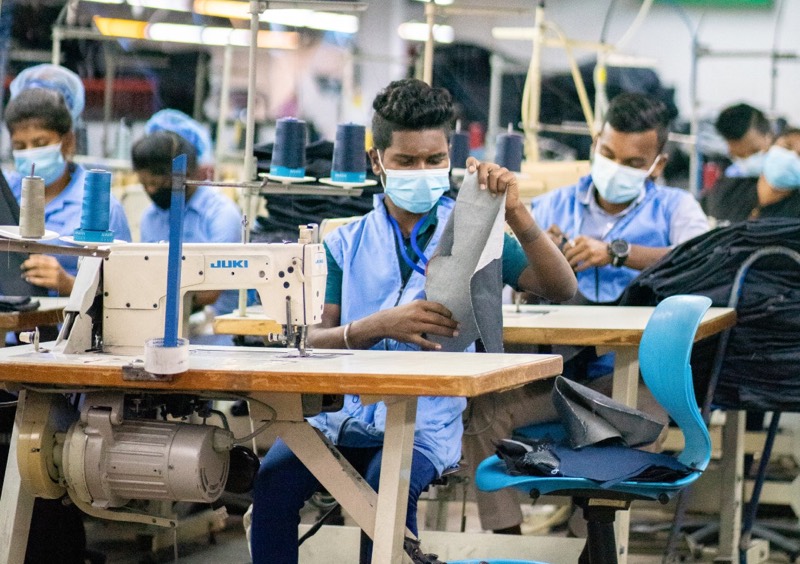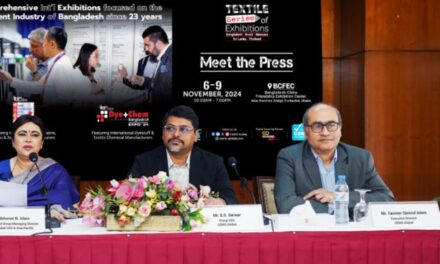 Many local apparel sector based SMEs have faced severe disruptions due to the COVID pandemic and economic crisis and are calling for structured assistance and access to working and investment capital is essential for upgrading facilities in ensuring a stable and sustainable path for SMEs.
Many local apparel sector based SMEs have faced severe disruptions due to the COVID pandemic and economic crisis and are calling for structured assistance and access to working and investment capital is essential for upgrading facilities in ensuring a stable and sustainable path for SMEs.
“The government is doing their best to assist this segment,” said State Minister for Investment Promotion, Dilum Amunugama at the launching of the GTEX Project Sri Lanka at Kingsbury Colombo recently.
He said in addition despite its strengths, the industry faces challenges such as the adoption of new technologies like automation and data analytics, shifting consumer needs towards just-in-time production and competition for labor with other sectors.
“Mobility issues and changing career aspirations of the younger generation also pose challenges. High compliance costs for new standards, conversion to solar electricity and utility costs are additional hurdles.”
Market access, particularly for SMEs, and the slow growth of the fabric base are other concerns. However there are also new emerging opportunities which include benefiting from the UK DCTS and EU GSP+ schemes if fabrics are manufactured in Sri Lanka leveraging the sustainability narrative and capitalizing on de-risking from China. “The industry’s strengths in design and development can also enhance its global offerings.”
Meanwhile, Consultant International Trade Centre Matthias Keappe said Sri Lanka Apparel export companies should gear up for future challenges and compulsory requirements that will be introduced soon. Keappe said that every exported apparel from Asia and elsewhere should have a ‘Bar code’ giving the entire history of the apparel starting from the source of fabric and other manufacturing details. “This will be a must for UK, EU, and US exports in around three years.”
“Larger apparel companies may know about this but authorities must inform the SME sector about this development.”
Sri Lanka’s Textile & Apparel Industry is the largest export sector, generating over USD 4.8 billion in 2023, accounting for 42% of total merchandise exports. The sector contributes 7% to the Gross Domestic Product (GDP), making it the largest single sector contributor. itsmain export markets: USA, UK, and EU. Sri Lanka has pioneered sustainable manufacturing, with impressive changes in processes, sourcing strategies, and product innovation.
Chairman and CEO, Export Board Development Board said that GTEX2 will support SME companies in textile and clothing industry to improve their operational capacities, including on social norms and environmental sustainability, add value to existing products and services and expand exports into traditional and new markets.
The programme was organized by Switzerland’s State Secretariat for Economic Affairs (SECO) and the Swedish International Development Cooperation Agency (SIDCA) together with the technical assistance from International Trade Center (ITC) The Swiss Government funds this programme and the International Trade Center (ITC) will provide the technical assistance for this programme.
“I am confident that this programme will provide the industry with the motivation and guidance to realize the country’s potential and drive the nation towards achieving its set targets.”





















